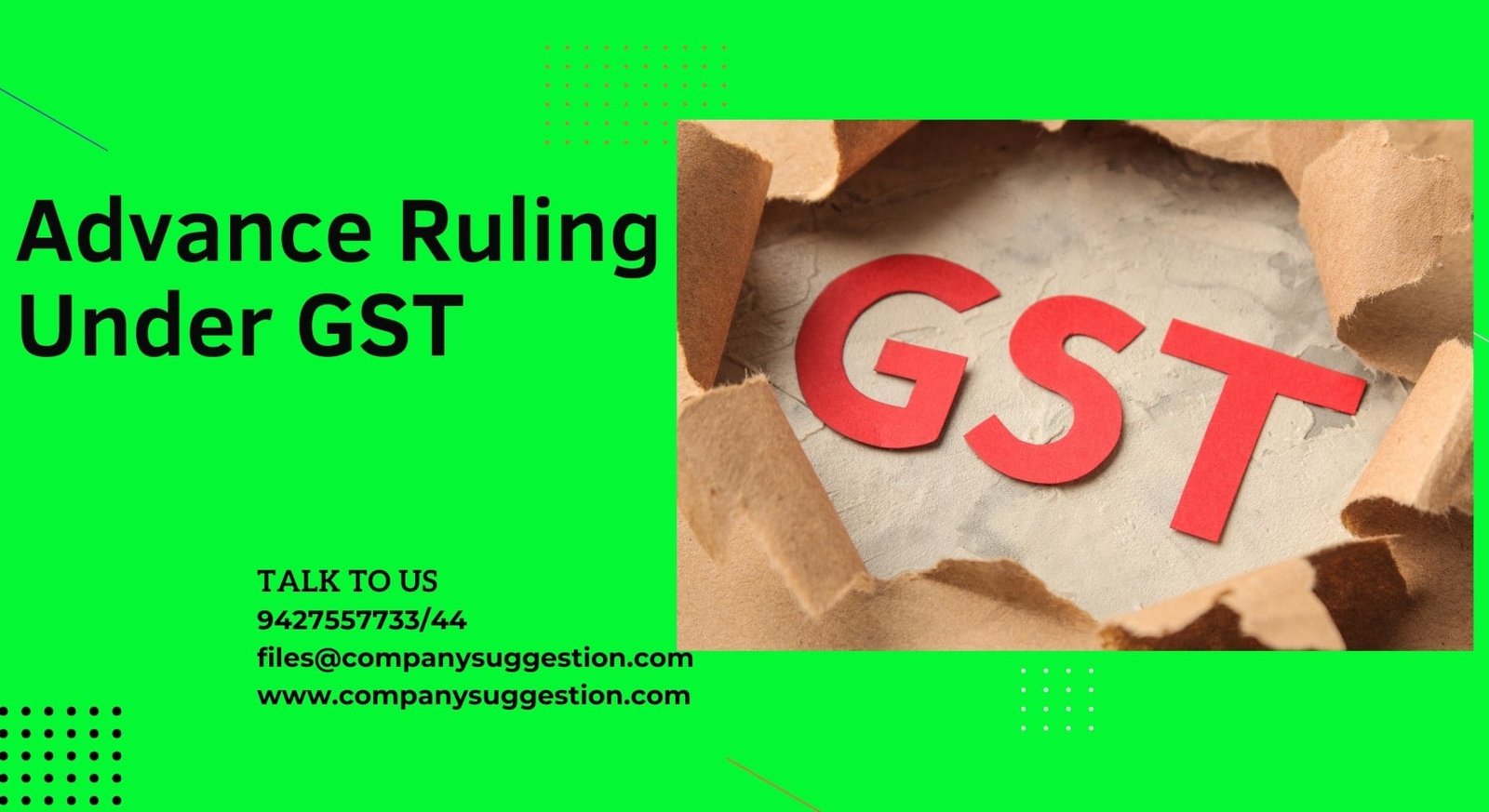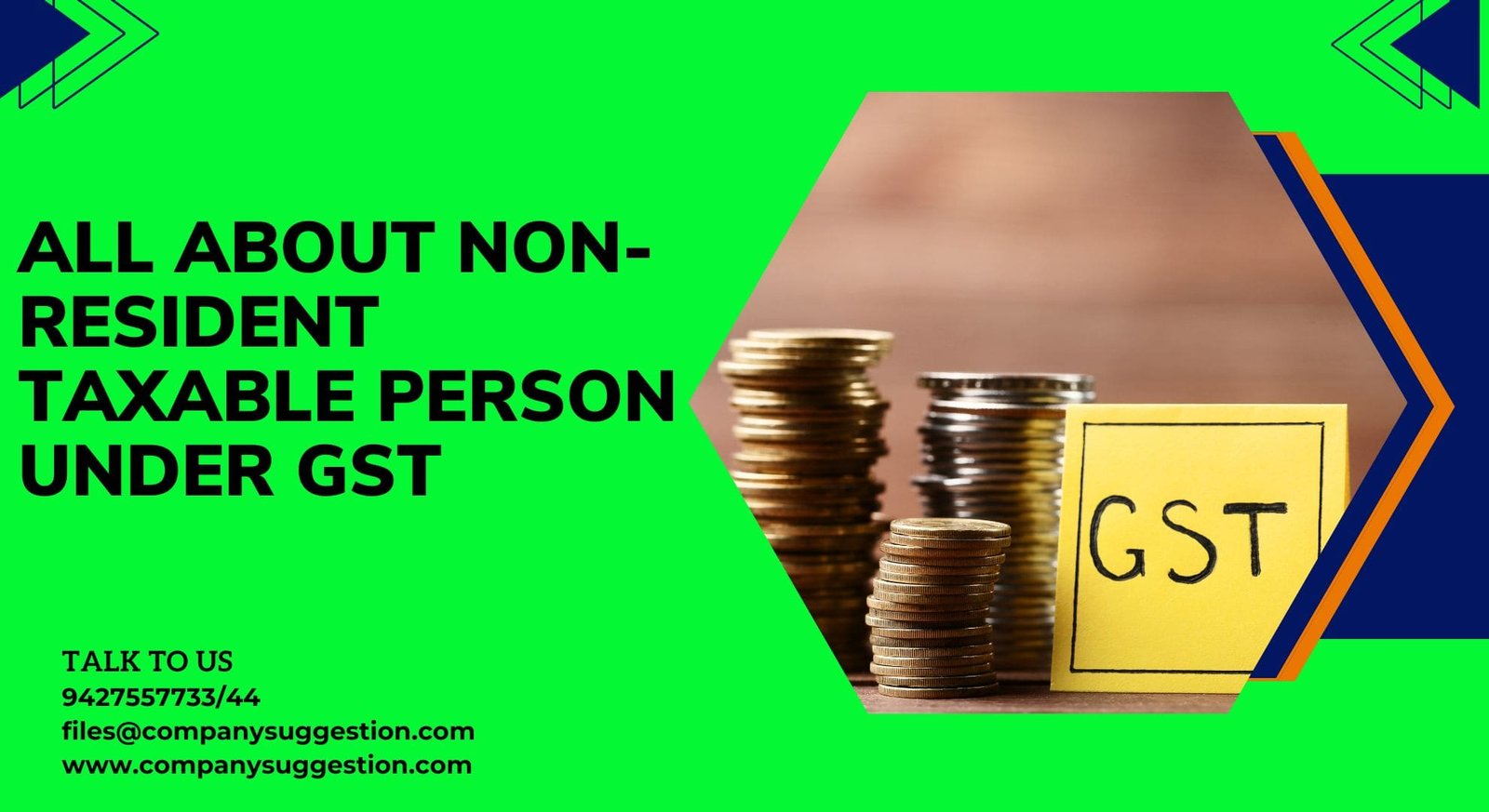Advance Ruling Under GST
Advance ruling mechanism under GST serves as an essential tool for providing clarity and certainty to taxpayers on various aspects of GST law. Advance ruling under GST is a valuable tool for ensuring that taxpayers have a clear understanding of their tax obligations, which helps in promoting a fair and efficient tax system.
Advance ruling is necessary for several reasons
- It provides businesses with certainty and clarity regarding their tax liabilities.
- It helps in minimizing disputes and litigation.
- Businesses can make informed decisions regarding their transactions and business planning..
- Advance rulings promote uniformity and consistency in the application of GST laws across different jurisdictions.
- It helps in reducing the costs associated with legal disputes and compliance.
- Preventing misunderstandings and ambiguities about tax obligations, businesses can save on legal fees and other costs related to tax disputes.
- By providing clarity and reducing tax-related uncertainties, advance rulings can encourage both domestic and foreign investment.
Situations for Requesting a GST Advance Ruling
A taxpayer or a registered person can file an application for an advance ruling before undertaking the transaction to ensure clarity and compliance with GST laws. A taxpayer can request for an advance ruling under GST in the following situations:
- Classification of Goods or Services under any act.
- Applicability of Notification issued by the government to a particular transaction or class of goods and services.
- Determination of Time and Value of Supply of goods or services.
- Whether Input Tax Credit (ITC) paid or not paid, including whether ITC can be claimed on specific goods or services.
- Whether a particular transaction or supply is liable to be taxed under GST and, if so, the applicable rate of tax.
- Person or entity is required to be registered under GST for a specific supply or transaction.
- Applicable GST rate for a particular supply of goods or services.
- Determining whether a supply is considered a composite or mixed supply under GST
- Determining the nature of supply
A taxpayer or a registered person can file an application for an advance ruling before undertaking the transaction to ensure clarity and compliance with GST laws. The advance ruling can be sought by submitting Form GST ARA-01 along with the prescribed fee to the Authority for Advance Ruling (AAR).
When an Application Not Acceptable
An application for an advance ruling under GST may not be accepted under certain conditions, which are intended to ensure that the process is used appropriately and effectively. Without giving opportunity of heard application can’t be rejected. Below are the key situations where an application will not be entertained:
- Decisions that are already part of ongoing legal or administrative processes.
- Applications involving issues that have been conclusively decided by competent authorities are not eligible for an advance ruling to avoid contradictory decisions.
- If the question does not pertain to these specified matters, the application will not be accepted.
- Incomplete or improperly filled application forms
Process of Obtaining an Advance Ruling Under GST
The process of obtaining an advance ruling under GST involves several steps, from application to the final ruling. The advance ruling can be sought by submitting Form GST ARA-01 along with the prescribed fee to the Authority for Advance Ruling (AAR). Below is a detailed explanation of the process, including the forms and fees involved:
1. Application Submission
- Form: GST ARA-01
- Fee: INR 5,000 for each question raised in the application
2. Acceptance and Verification
- The AAR reviews the application to ensure it is complete and that the fee has been paid.
- If the application is found incomplete or the fee is not paid, the applicant may be asked to provide the required information or payment.
3. Hearing and Examination
- The AAR may call for a hearing where the applicant can present their case.
- The authority examines the application, facts of the case, and relevant laws.
4. Issuance of Advance Ruling
- The AAR issues its ruling within 90 days from the date of receipt of the application.
- The ruling includes the decision on the questions raised, providing clarity on the GST implications.
5. Appeal Process (if applicable)
- If the applicant or the tax authorities are not satisfied with the advance ruling, they can appeal to the Appellate Authority for Advance Ruling (AAAR).
- Form: GST ARA-02 for the applicant or GST ARA-03 for the concerned officer.
- Fee: INR 10,000 for the appeal.
6. Issuance of Appellate Ruling
- The AAAR reviews the appeal and issues its ruling, which is binding unless further challenged in the High Court or Supreme Court.
Conclusion
The advance ruling mechanism under GST serves as an essential tool for providing clarity and certainty to taxpayers on various aspects of GST law. It helps businesses in making informed decisions, ensuring compliance, and avoiding potential disputes with tax authorities. However, it is crucial to understand the eligibility criteria and the conditions under which an application for advance ruling may be accepted or rejected. Advance ruling process promotes a transparent and efficient tax administration system, benefiting both the taxpayers and the tax authorities by minimizing ambiguities and enhancing compliance.
If you have any doubt regarding this, then you can send your doubts on company suggestion and our team of experts will guide you. And give your suggestion on the drop box we will consider them. Connect with us for Compliances of your companies and other compliances of your entity.













